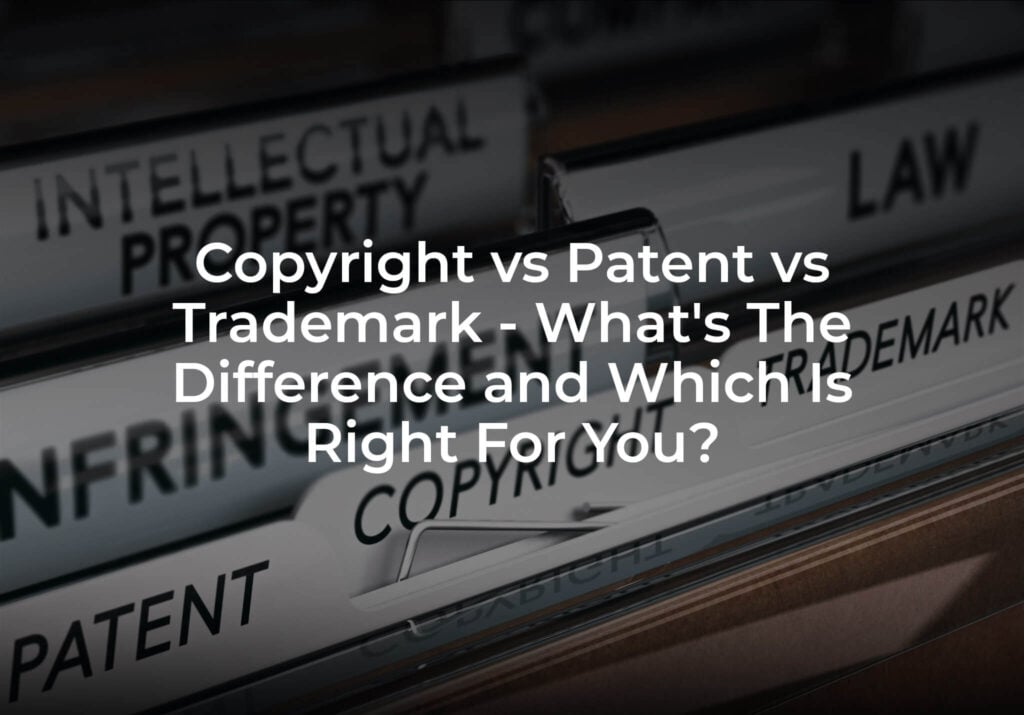What Is the Difference Between Trademark and Copyright?
by Admin
Posted on 07-06-2024 03:44 PM

The best way to protect a copyright is to register it with the u. S. Copyright office, which is part of the library of congress. Registration is optional but highly recommended because it comes with more legal protections. Copyright registrations are granted by the u. S. Copyright office. Pro tip: after applying to the copyright office, you should consider adding a copyright notice to your work. It is not a requirement but is a good practice because it shows that you own the creative work and deters others from using it without permission. Part iii. Trademark vs. Copyright
now that we know a bit about trademarks and copyrights, let’s look at the key differences between them.

A trademark and a copyright have similarities and differences. Both are legal protections for intellectual property, but not of the same kind. Different material intellectual property that can be trademarked cannot be copyrighted. Intellectual property that can be copyrighted cannot be trademarked. For example, a company can trademark its name and logo and copyright its videos and books. There are a few exceptions that can be protected by both a trademark and a copyright. A logo is one example of this because it is a creative work and an identifying mark. A copyright is automatic upon creation while a trademark is not.
How to Apply for a Trademark and a Copyright
Trademark: trademarks primarily apply to branding elements used in commerce, such as brand names, logos, slogans, and product packaging. They focus on identifying the source of goods or services and establishing brand recognition and reputation. Copyright: copyright protects the expression of creative ideas and original works across a broad spectrum of mediums. This includes literary works (e. G. , books, articles), visual arts (e. G. , paintings, photographs), audiovisual works (e. G. , films, videos), and musical compositions, among others.

Hiring an experienced intellectual property attorney to help you file for trademark and copyright protection provides stronger protection to your trademarks and copyrightable works against infringement and provides you stronger remedies in the event of infringement. Church church hittle + antrim has been providing comprehensive legal services to businesses since 1880. We are here to help you determine if you need a trademark vs. Copyright and to take care of applying for federal registration. Contact us today.
Trademark and Copyright Symbols
Trademark and copyright are two very popular and common legal terms—you’ve likely seen the symbols ™, ®, or © affixed to various brand names, logos, or titles. They are often confused for one another, but trademark and copyright serve distinct purposes. It’s important any small business owner has a basic understanding of their differences and similarities. Although both offer protection of so-called intellectual property, what they protect and how makes them very different legal tools.
Why trust us? nolo was born in 1971 as a publisher of self-help legal books. Guided by the motto “law for all,” our attorney authors and editors have been explaining the law to everyday people ever since. Learn more about our history and our editorial standards. Each article that we publish has been written or reviewed by one of our editors, who together have over 100 years of experience practicing law. We strive to keep our information current as laws change. Learn more about our editorial standards. When most people think of "property," they imagine something tangible, such as real property (usually real estate) or personal property (such as jewelry, computers, and so forth).
In the dynamic landscape of innovation and creativity, safeguarding intellectual property (ip) is crucial for individuals and businesses alike. The trio of copyright, patent, and trademark serve as pillars of protection, each with its own distinct purpose. To effectively navigate this intricate terrain, understanding the key differences and nuances among these forms of ip is essential. In this comprehensive guide, we’ll delve into the intricacies of patents, copyright, and trademarks, exploring their unique characteristics and shedding light on why registering your ip is a strategic move – whether you’re an artist seeking to safeguard your masterpiece, an inventor with novel ideas, or a business looking to fortify its brand presence.